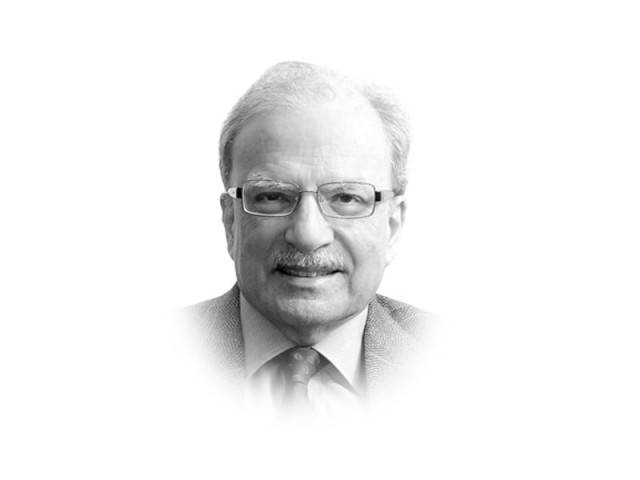Turmoil in the Muslim world
Those who have acted against the West — the state and the people — cannot be said to be behaving as good Muslims.

The writer is a former caretaker finance minister and served as vice-president at the World Bank
To these three parts, we should add a fourth. This is made up of the dozens of Muslim communities scattered about in western Europe, North America, South East Asia and Australia. The last geographic segment of the Muslim world has undertaken directed violence that has shaken the world. The assault by a lone gunman on the Canadian parliament in Ottawa, hostage-taking in Sydney, Australia, again by a lone gunman and now, the well-planned and executed attack on a French magazine that had directed its satire mostly at Islam. These and several other incidents indicate that some 15 million or so Muslims reside in the countries where they have not been fully assimilated in the local cultures. They have expressed their resentment by turning against the states and the people who have given them shelter. It is said that Islam encourages forgiveness against the perceived harm done and expression of gratitude to those who provide comfort and solace. Those who have acted against the West — the state and the people — cannot be said to be behaving as good Muslims.
There are several things that are common to the western segment of the Muslim world. They have very young populations, with median ages ranging between 21 and 23 years; they are politically underdeveloped; they have developed their economies in the way that have resulted in extreme inequalities; they have neglected their women, relegating them to the back of societies and economies; and they have uneasy relations with the West, in particular with the United States. Many of these have deeply embedded tribal cultures that are hard to change. Scores of anthropologists and sociologists have pointed out that even the tribal systems of the West — such as the Italians from the Island of Sicily — carry their cultural norms, even when they assimilate in more developed societies. This is the case with Italian-Americans.
Enormous amount of chaos surrounds the western part of the Muslim world. Its beginning was the result of several earth-shaking events. These included the withdrawal of European colonial powers from Africa, the Middle East and South and Central Asia. The new ‘Great Game’ that the West played in many parts of the Muslim world has also affected these countries.
The strong economic links that developed between the Muslim elite and the West also contributed to the turbulence in the area as did the rapid rise of the middle class in both number and awareness. The re-balancing in the global economic system as a consequence of a number of profound structural changes are some of the developments that have thrown these Muslim communities off-balance.
This loss of economic equilibrium has resulted in the use of violence as an expression of resentment. It is easy and analytically comforting to quickly jump to the conclusion that events such as the killing of almost 150 young students in an army school in Peshawar or the murder of cartoonists and journalists in the heart of Paris were somehow related to religious beliefs. If this explanation takes hold, it will result in the adoption of strategies that will not produce the needed results. The need of the moment is to find ways to factor in the determinants of the rise of extremism I have identified above: to deal with the aspirations of the youth, to address income and wealth inequalities, to improve the economic and social status of women, to move forward the political developments of these societies and to work out better accommodation with the West. I believe that Pakistan could serve as a laboratory in which this broad economic, social and political reformation could be tried with productive results.
Pakistan has begun to counter the rise of extremism and associated terrorism by using force against those who are defying the state. The launch of Operation Zarb-e-Azb was the first large-scale and systematic response by the Pakistani state to the unrelenting increase in extremism and terrorism in the country. The Peshawar tragedy of December 16 prompted further action. These took the form of the National Action Plan; the passage of the 21st Amendment to the Constitution; the establishment of military courts for the speedy trial of those convicted of committing terrorist acts; and the cancellation of the moratorium against the carrying out of death sentences.
Some of these actions have prompted some expression of unhappiness from both the left and right of the political spectrum. There may be some substance in these criticisms but the fact remains that in all civilised societies, the use of force remains the exclusive domain of the state. Whether the amount of punishment meted out is in accordance to the scale of the committed crime has been asked again and again. But it should be understood that it is only state that should have the authority to punish.
Published in The Express Tribune, January 19th, 2015.
Like Opinion & Editorial on Facebook, follow @ETOpEd on Twitter to receive all updates on all our daily pieces.














COMMENTS
Comments are moderated and generally will be posted if they are on-topic and not abusive.
For more information, please see our Comments FAQ